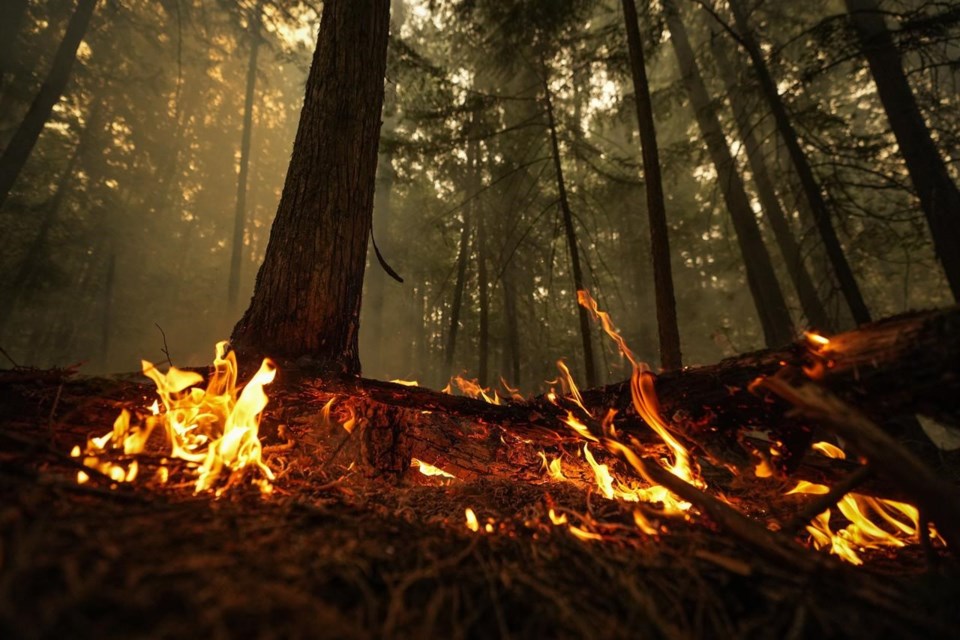British Columbia's wildfire service says long weekend weather conditions caused "very aggressive fire activity" on several active blazes in the province's central fire zone.
The service says the area covering the Vanderhoof and Fort St. James fire zone saw less humidity than expected, coupled with hot temperatures and strong winds over the long weekend.
The wildfire service says the conditions increased fire behaviour in the region, spurring evacuation orders and alerts in rural areas by the Regional District of Bulkley-Nechako and the Regional District of Fraser-Fort George.
In the Bulkley-Nechako, the regional district says it has ordered the evacuation of all properties west of the Kenney Dam due to the Lucas Lake wildfires, and properties to the dam's east remain on alert.
In the Fraser-Fort George, the regional district ordered the evacuation of Electoral Area G due to the Great Beaver Lake wildfire, which was discovered at the beginning of July and has grown to 107 square kilometres.
More than 430 fires continue to burn in B.C., with more than 2070 reported this season that have charred more than 22,200 square kilometres.
This report by The Canadian Press was first published September 4, 2023.
The Canadian Press



